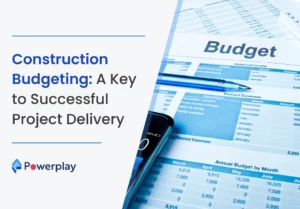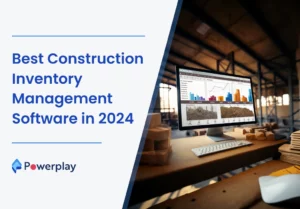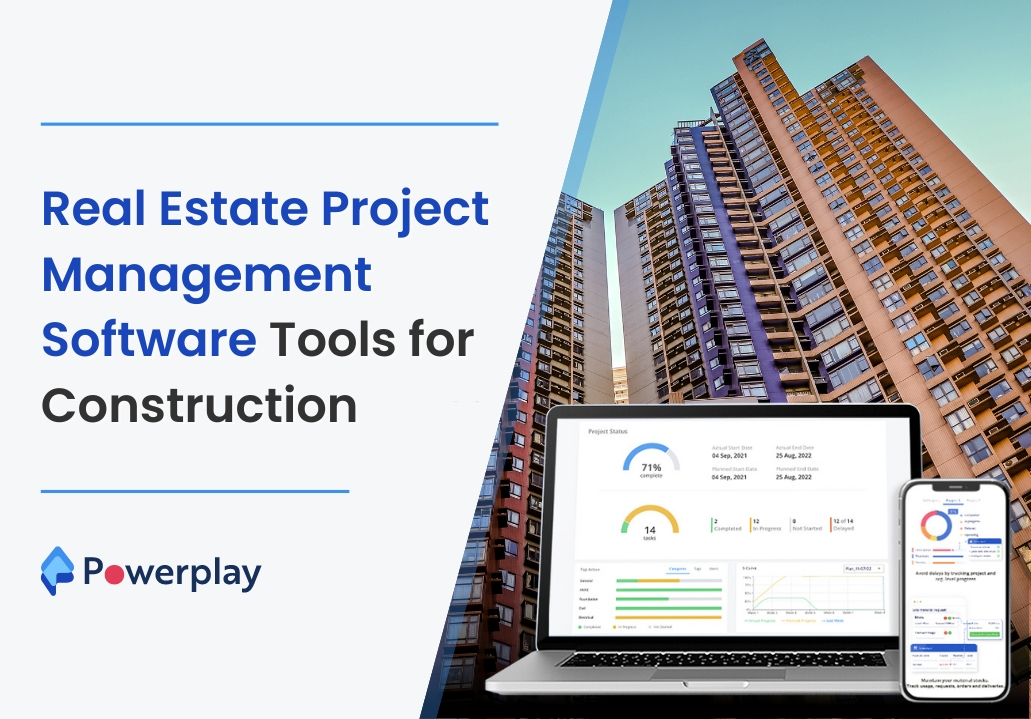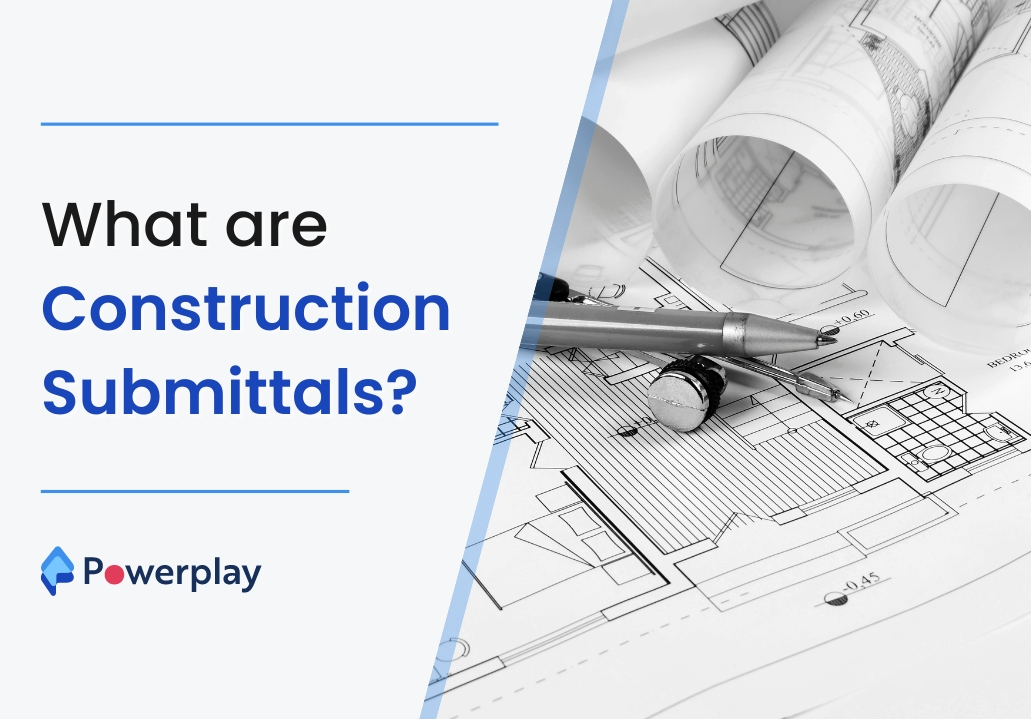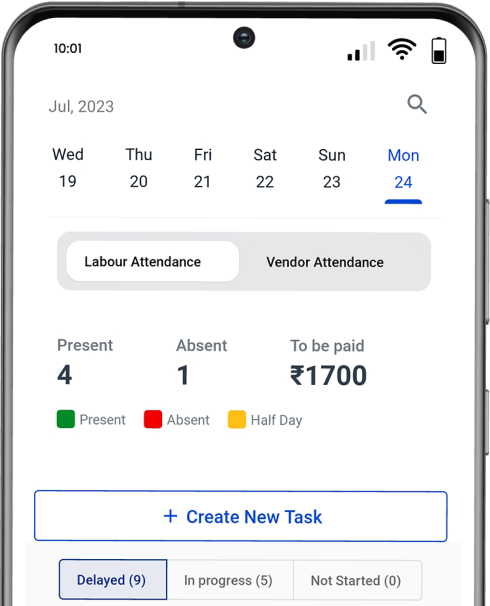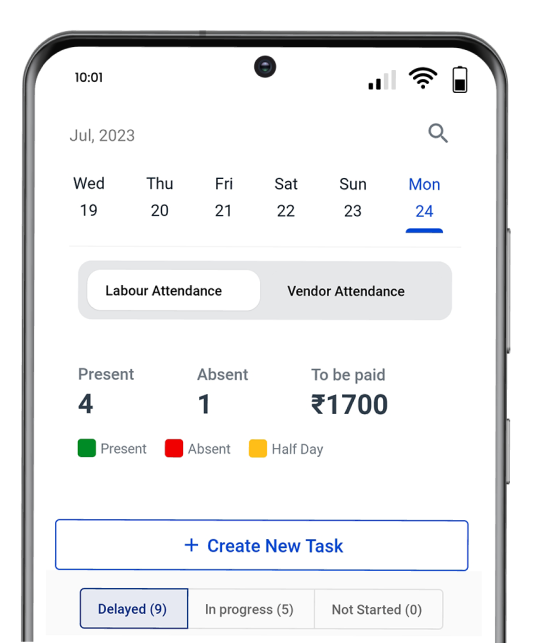Top 5 Reasons Why Construction Projects Get Delayed
-
Kumar Abhishek Anand
- October 11, 2023
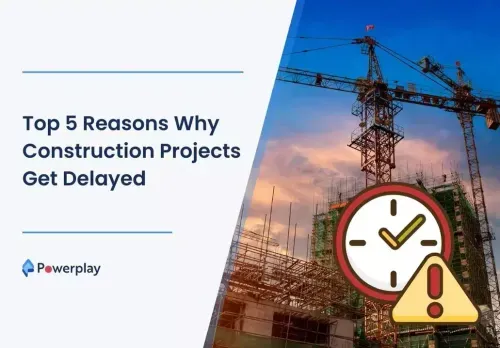
Whenever we talk about construction projects, delays have become an inevitable part of it. The construction industry has become so used to delays, that it just coexists with the construction processes and feels quite normal. With the amount of complexity involved in managing and carrying out several tasks simultaneously or one after the other, delays and cost overruns have become the fundamental nitty-gritty problems of a construction project.

The long period for operations, unfavorable conditions, complex working procedures, financial burden, technological functions, etc all add up to delays if appropriate construction project management plans are not inculcated in the project process. These delays can be reduced or eliminated if proper steps are taken in a construction project as per specifications and without minimal errors.
One of the best ways to manage construction projects in present times is to use project management applications which also help in monitoring the project progress remotely. Many applications are available out there in the market specific to construction projects and most of them are quite versatile.
Table of Contents
ToggleTop Five Reasons that cause Delay in Construction Projects
The major causes for project delays in the construction industry can be the following reasons:

1. Inefficient Planning- Poor planning leads to poor execution. Without proper planning neither can project objectives be achieved in their entirety nor can it ensure delivery of tasks in a given timeframe. Planning involves meticulously reviewing and fully understanding the various tasks involved in a construction project such as specifications, plans, the scope of work, client needs, etc, and setting them up in a systematic manner to accomplish project goals with a minimum investment of time and cost. It also involves strategizing human and machinery resources in such a way that maximum output can be achieved. Proper planning includes working with all the stakeholders to plan out the entire construction project schedule and milestones.
And lastly, planning also involves assessing risks, devising management strategies and site-specific safety plans, developing contingency plans, lining up procurement processes, site logistics, etc. When more time is invested in planning out the construction project, the better will be the project progress. When these factors are not considered dearly or are ignored, knowingly or unknowingly, the project gets delayed inevitably. This delay can result in cost increments and other unwanted consequences to the client or contractors or the project outcomes.
2. Ineffective Coordination and Communication- One of the common mistakes that lead to construction project delays is not establishing effective communication and coordination among stakeholders. Synchronization issues will occur when there is a lack of substantial communication and coordination among parties to update, analyze and direct tasks in a sequential and unimpeded manner.
Developing a communication plan, communications hierarchy, establishing coordinated document control procedures, and appointing a central point of contact can assist in a smooth flow of information. All communication must be documented, saved, and assigned to respective stakeholders to settle any kind of disputes or disagreements during the course of the project or in the future. Keeping everybody updated about the project progress or any schedule changes can help in preventing any major setbacks that may result in project delay or worse, project failure.
When there is any kind of blockage to the appropriate flow of communication or coordination among teams and members, delays are certain that will result in excess time and cost consumption. The Powerplay can certainly prevent blockages in communication and lags in coordination among employees with help of its attractive progress update feature that helps to put up updates of the dynamic progress of a construction project along with site pictured on a daily or weekly or even fortnightly basis.

3. Change in Project Scope and Change Orders- A project scope of a construction project is used to define the project objectives that need to be accomplished to deliver certain specific structural components or buildings. Establishing poor scope, in the beginning, can surely cause overruns in cost and time. Any modification or change in the project scope at any time during the project can result in revising of variables such as a revised cost estimate, addon methodologies, modified schedules, new procurement plans, assurance plans, safety and risk assessments, etc that will ultimately result in consumption of more time and resources than the initial estimation.
The continuous changes and expansions to the project’s initial scope can be popularly termed as Scope Creep. Some major reasons that lead to scope creep include incomplete plans and specifications, ineffective communication, poorly defined scope, mishandling of change orders and fickle attitude of clients, etc. Change orders are similar to scope creep, which involves changes in plans outside of the original scope. The only difference being scope creeps involve only additions to the original scope whereas change orders involve addition as well as deletion from the original scope.
Most of the time changes in the scope of a construction project are inevitable due to the dynamic behavior of construction processes and it might be considered a necessity to accept this fact to attain proper control over any change in project scope. Thus it is important to proactively integrate and manage any change in the scope of a construction project and involve the stakeholders who will be affected by these changes to incorporate their needs in the project lifecycle. The contract should clearly outline the scope of the project and any additions to it should be systematically requested and recorded. Without any prior authorization by the client or a change order being assigned, no additional work should be initiated. If proper planning and precaution are not taken while preparing the scope of the project or while modifying the scope, unwanted time delays are bound to take place. Powerplay application has provisions to inculcate any change in project scope or development of a fresh change order as planned and reviewed by the client or contractor.

4. Budget Conflicts and Labor Shortages- One of the biggest reasons for project delays occurring in any corner of the world. Nobody will work if they do not get paid as promised or contracted to. This happens when the client is unwilling to pay up the extra spending that has occurred due to unforeseen cost overruns. Contingencies are always prepared for these types of issues, but sometimes unwanted situations that have been planned for may arise and cause a blockage in the project’s progress. This is a completely messy situation until one of either the clients or contractors comes forward to find a solution to this issue. Budget conflicts are difficult to eliminate and delays too because of it, but steps can be taken to prevent them and reduce their impacts.
Labour Shortages are a problem in present times that results in unwanted but also unavoidable project delays. A very less part of the current population is interested in doing construction work due to the high risks involved and more specifically far less interested in working on construction sites. Most employees, especially labourers remain absent from construction sites due to injuries, lax nature, or shortage of workforce. Daily budget spending records on the Powerplay application can help in predicting any budget overruns. The attendance can also be easily tracked with the help of this application on any given basis.

5. Design Issues and Errors- Design can be considered to be the first important stage or phase of any construction project. Any error that has crept into the functioning of the construction project due to the designs that have been prepared in the initial stage, is mostly discovered during the execution phase. This may be a severe blow to the actual project timeline because no matter how well the design may have been reviewed, it is bound to discover what’s wrong with it midway through the project. The delay in projects due to errors in design can last up to months or even years. A defective design can cause inaccurate project goals that may ultimately lead to improper application of procedures to achieve successful results, and the subsequent application of procedures and execution of tasks in a project unfolds the errors in design at a later stage.
Considerable time delays and cost overruns occur in the process of trying to correct these errors, and thus designs must contain provisions and contingencies for the occurrence of any error so that there is sufficient time for any further modifications, investigations, corrections, reviews, etc at a later stage in the construction project. Eventually, any kind of design issue will certainly delay the project completion, the reason being either delay due to correction in the design or preparation of a parallel design solution.
Improper Post-Construction Phase Management– Another reason apart from the aforementioned five major issues, that is necessary to discuss and project delays because of any unwanted or unforeseen factor that can delay the project at its very last stages is certainly bad news. Improper management at the post-construction stage involves slow closures to final tasks, claims waiting for client’s approval, variation order issues, issues related to the release of retention money and performance bonds, final payment certificate, etc. Being the last stage of any construction project it is often ignored by contractors that may lead to inherent project delays.
Proper management of project processes and supply chains for these tasks can prevent delays in the project duration. All the above problems can be eliminated with the help of a construction management tool such as a construction project management software or application. Powerplay is an easy to use multi-featured construction project management application that helps in planning efficiently, coordinating and communicating, managing modifications in the scope of the project, providing viable solutions to budget conflicts, helping in early identification of design errors, efficient management of post-construction stages, and many other essential functions that are necessary for the smooth running of the project and its completion in the given time and cost estimate.
Share
Kumar is a digital content professional with more than 2 years of experience in Blog writing, copywriting and scripting. His passion lies in the art of creating convincing content that plays a major role in converting leads for SAAS businesses.
